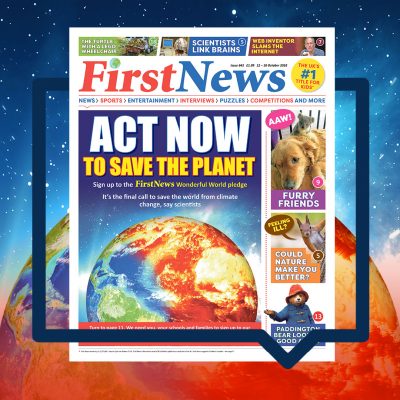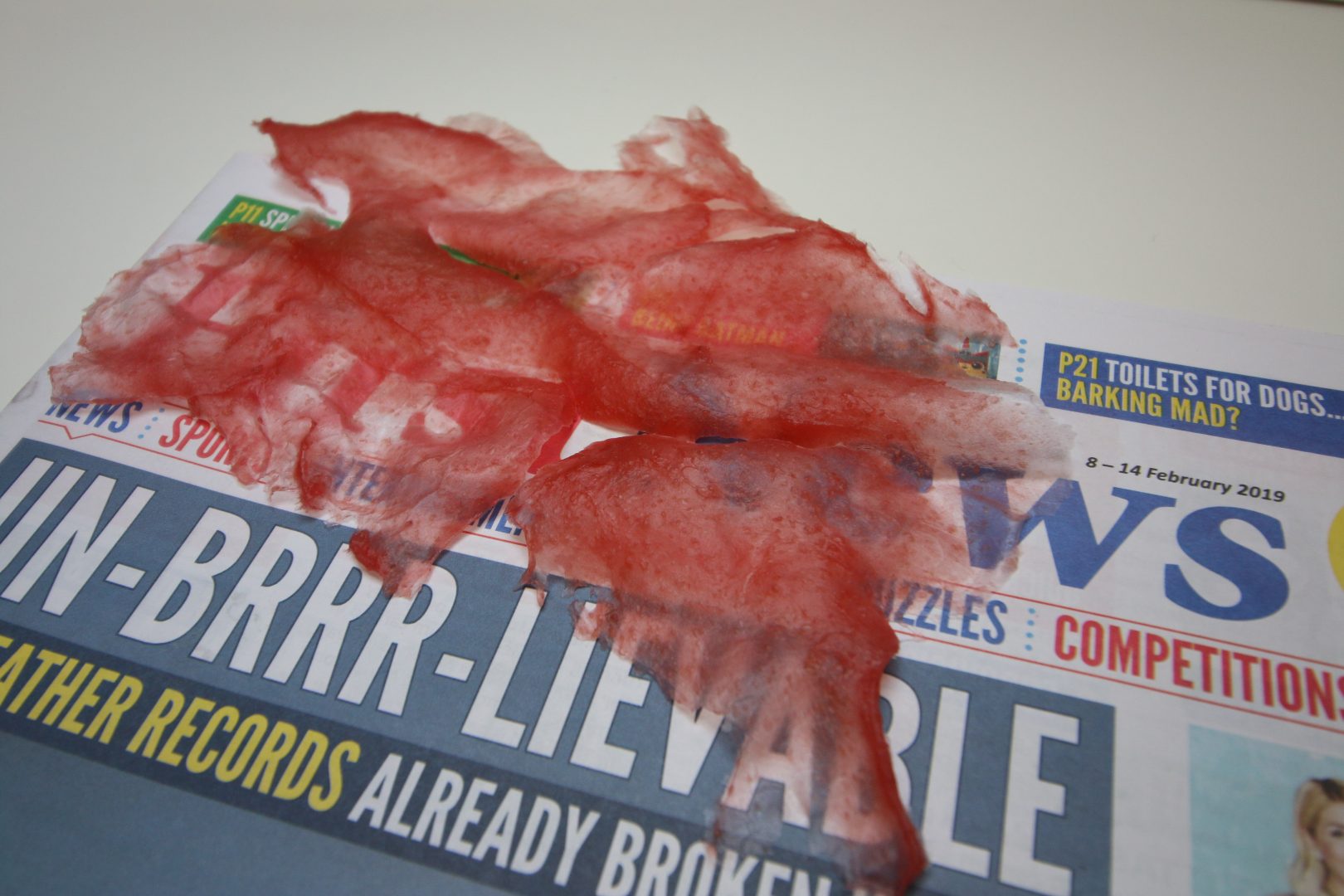FIRST NEWS’
WONDERFUL WORLD PLEDGE
Act now to save the planet by signing up to the First News Wonderful World pledge. Scientists say it’s the final call to save the world from climate change.
Everyone needs to work together to help stop the world from heating up beyond control. Our pledge includes 12 things you, your families and schools can do to make a difference.
I PLEDGE TO
• Avoid single use plastics
• Reduce, re-use and recycle
• Switch off lights and electrical devices, like TVs, when leaving the room
• Try not to waste food and throw less of it away
• Use a washing line instead of a tumble dryer
• Buy more seasonal food
• Insulate homes
• Switch your family car to an electric one as soon as you can and walk or cycle short distances
• Encourage adults to use videoconferencing instead of business travel
• Eat less meat, milk, cheese and butter
• Demand low carbon in every consumer product
• Take trains and buses instead of planes

Oops! We could not locate your form.
Make your own potato plastic!
Now that First News is sent in a completely compostable wrapper made from potato starch, we thought you might like to have a go at making your own potato-based plastic.
STEP 1
How to extract the potato starch:
- Wash and peel the potatoes.
- Chop the potatoes and put in a blender with a cup of water, mix until you have a cloudy liquid. (If you do not have a blender handy, you can simply grate and mash the potatoes then pick any large chunks of potato out of the mix.)
- Leave the mixture to stand for about 20 minutes. You should now see a white substance settling at the bottom of the mixture. This is the potato starch! Using a sieve, strain the cloudy liquid to remove any big bits of potato that might still remain.
- Leave this to stand for a further 30 minutes and then carefully pour the top liquid away as you will no longer need this.
- The starch at the bottom of the container can be used immediately or kept and dried to use later.
STEP 2
How to make the potato plastic:
- Measure out 1 tablespoon of starch (that you made or bought) into a saucepan. Preferably an old one that is non-stick.
- Add 125ml (about 7 tablespoons) of cold water.
- Add 2 teaspoons of white vinegar to the mixture.
- Add 2 teaspoons of the glycerine. More glycerine will make the plastic softer and more flexible, less will make it harder and stiffer but more brittle.
- If you want coloured plastic, add a few drops of food colouring.
- Mix it all together using a spatula.
- Place the saucepan on the hob at a low heat and stir constantly. When the mixture starts to thicken, turn the heat up to medium and keep stirring. When it starts to boil, keep it boiling for 5 minutes or until the mixture starts to become clear and get very sticky.
- You should now have a ‘gooey’ substance that you can pour into a mould or spread thinly onto a baking tray or sheet of aluminium foil.
- Leave this to dry for about a day and your plastic should be ready to use.
WHAT YOU WILL NEED:
- 2 white potatoes (or to skip straight to step 2, you can use shop bought potato or corn starch)
- Glycerine (this helps make the bioplastic more flexible)
- White wine vinegar (this helps remove the starch polymers we don’t want)
- A saucepan
- Food colouring
- Spatula
- A hob
- A mould, baking tray or aluminium foil
OPTIONAL:
- Blender
- Knife
- Peeler
- Sieve
- Potato masher
- A glass or plastic bowl or similar container

“Future News” bulletins
We have created two “Future News” bulletins with WWF.
One news bulletin reports on a positive future where people today changed the way they behaved to reduce the impact of climate change.
The other bulletin is not such good news. People didn’t change their ways and climate change has got out of control. So, the Earth, and those that inhabit it, are suffering. This is why you need to sign up to the First News Wonderful World pledge.
This is the Good News bulletin. Watch the Bad News bulletin.
